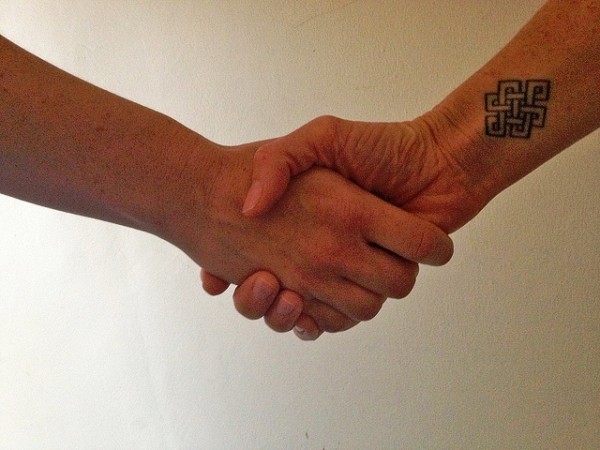Shaking Hands can be More Dangerous Than Smoking: Study

A handshake can be more dangerous than smoking cigarettes, according to a study.
Shaking hands is a commonly accepted social ritual of exchanging greetings conveying trust and respect. Researchers from the University of California, Los Angeles, advise doctors and medical practitioners against practicing the friendly gesture with their patients to avoid possible transmission of disease spreading bacteria, which they say can be as risky as smoking in public. Medical and health care officials' palms and hands are easy sources of cross-contamination.
"In recent years there has been increasing recognition of the importance of hands as vectors for infection, leading to formal recommendations and policies regarding hand hygiene in hospitals and other health care facilities," wrote the author in the study, reports the Daily Mail.
The team urged a serious restriction on the handshake practice in the medical field and vigorous promotion of hand hygiene policies to reduce the incidence of hospital acquired infections and antimicrobial resistance. However, handshakes are a 'deeply established cultural custom' and it might seem rude to avoid it in professional and social environments. Therefore, the experts encourage replacing it with alternatives like waving hands or placing the palm on one's chest, practices that are acceptable in many parts of the world.
Furthermore, they suggest raising awareness by introducing warning signs and messages on health hazards of poor hand hygiene similar to smoking bans put up in public places. This will prove beneficial in the long run by reducing infections and medical costs.
'Nevertheless, removing the handshake from the health care setting may ultimately become recognized as an important way to protect the health of patients and caregivers, rather than as a personal insult to whoever refuses another's hand. It would be a mistake to dismiss, out of hand, such a promising, intuitive, and affordable ban," said the researchers, reports the Daily Mail.
More information is available online in the JAMA.
May 22, 2014 03:07 AM EDT





